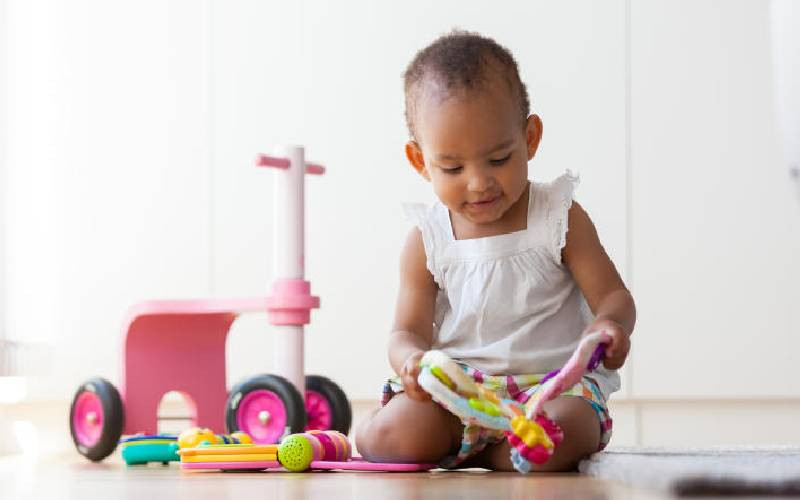
Sylvia Mochabo is a pageant beauty queen, which explains her bubbly dispensation, eloquence, and full-blown confidence.
She's passionate about autism awareness and runs an organisation called 'AndySpeaks.' There, Mochabo advocates for integration, educates society and rallies for the inclusion of persons with neurodevelopmental disabilities.
This noble cause was borne from her waking reality. Out of Mochabo's three children, two are on the autism spectrum. And while Mochabo chose to stay and bear the burden of caring for her children, the man responsible for their birth saw it fit to leave his family.
"My first born is 16, and he's 100 per cent okay. The second born is 13, and he's the most affected, and the last born too, although with dedication and placing him in the right environment, we've seen him improve over time," says Mochabo.
Her second born, Andrew, also has epilepsy, and the last born, Bradley, has a convulsive disorder. Andrew gets unprovoked convulsions. "He suffers seizures anytime, anywhere, and without warning." Bradley, too, except Mochabo has managed to identify his triggers and so keeps him as comfortable as she can.
"It's mentally and financially exhausting. I pay Ksh36,000 for transport just for Bradley to attend a decent school that can manage his condition."
On top of that, they both have learning disabilities.
- No evidence paracetamol in pregnancy causes autism, health bodies say after Trump's claim
- Trump's Tylenol-autism link lacks medical backing, say health experts
Keep Reading
"When Andrew was younger and had achieved certain milestones, he would lose it after every seizure. We would make progress and then regress with every convulsion. No matter how often I see him convulsing, I can never get used to it. It still breaks my heart the same way it did 13 years ago, and every time I want it to be over," says Mochabo.
"Some days are worse than others. Every seizure affects brain cells, and the longer it occurs, the higher the risk of brain damage," she says.
Somedays, I ask God, "why me" for giving me not just one, but two special needs children.
It's no wonder Mochabo is incensed at Nairobi City County's decision to revoke tax waivers for carers of people with disabilities.
"My bill for medication alone is Sh23,000 per month. And my only crime was to give birth like any other parent. Some families may afford a wheelchair, but what happens to those who don't? It means they will have to carry their child on their back until their back breaks," says Mochabo.
"We need to advocate for families with persons with disabilities. Most caregivers look after their special needs children for the rest of their lives. Personally, that's the reality I face. My son, at 13 has the mental capability of a five-year-old. I've had to end my career to care for them and advocate for their cause," says Mochabo.
Beatrice Achieng, a special needs teacher, says Kenya's curriculum only caters minimally to special needs learners.
"Children with different special needs are placed in one class, for instance. There are very few teachers trained and deployed to handle special needs children, and resources for autism are very few," she says.
Rosemary Ogolla, the executive director of the Autism Society of Kenya, highlights a lack of comprehensive research and data on autism as a massive impediment to solving the challenges people living with the disorder face.
"Data collection is the best method for understanding the needs of caregivers and people living with autism or any disorder," says Ogolla.
"How can we create high quality, suited solutions to meet their needs without proper data?" she says.
 The Standard Group Plc is a multi-media organization with investments in media
platforms spanning newspaper print
operations, television, radio broadcasting, digital and online services. The
Standard Group is recognized as a
leading multi-media house in Kenya with a key influence in matters of national
and international interest.
The Standard Group Plc is a multi-media organization with investments in media
platforms spanning newspaper print
operations, television, radio broadcasting, digital and online services. The
Standard Group is recognized as a
leading multi-media house in Kenya with a key influence in matters of national
and international interest.











